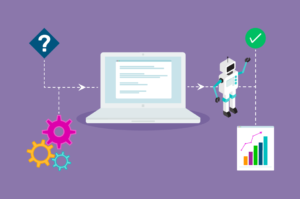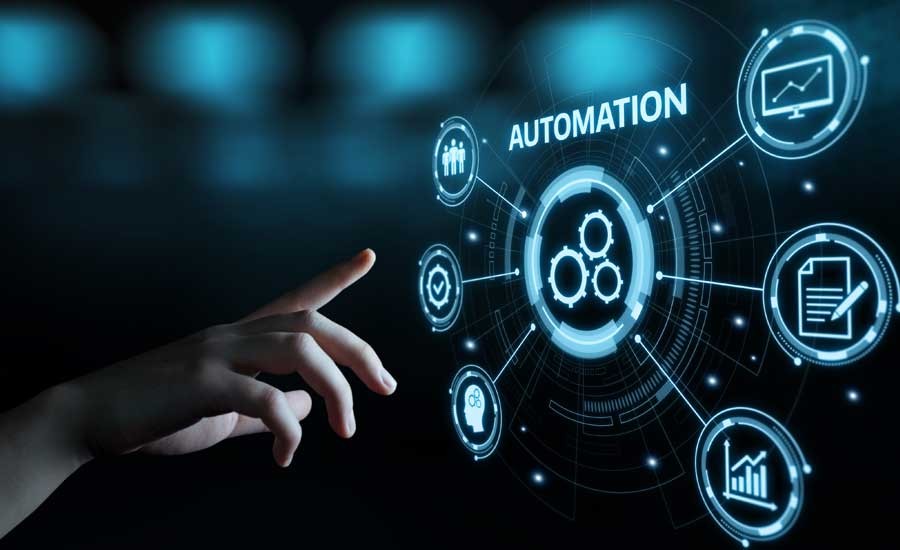Understanding Smart Automation: Revolutionizing Efficiency and Productivity
In today’s rapidly evolving technological landscape, the term “smart automation” is gaining significant attention. This innovative concept is reshaping industries, businesses, and our everyday lives. It promises to streamline processes, enhance productivity, and optimize resource utilization. But what exactly is smart automation, and how does it work? In this blog, we’ll delve into the world of smart automation, exploring its definitions, applications, benefits, and the key role it plays in the present and future of various industries.
Defining Smart Automation
Smart automation, at its core, is the fusion of cutting-edge technologies to create intelligent, self-regulating systems that carry out tasks and processes with minimal human intervention. It’s a comprehensive approach to enhancing efficiency by leveraging artificial intelligence (AI), the Internet of Things (IoT), big data, and machine learning.

The Building Blocks of Smart Automation
- Artificial Intelligence (AI): AI, with its capacity to learn and adapt, lies at the heart of smart automation. It enables machines to perform tasks that typically require human intelligence. This includes natural language processing, problem-solving, and decision-making. AI-driven systems are essential for recognizing patterns, making predictions, and continuously improving processes.
- Internet of Things (IoT): IoT refers to the interconnectivity of devices and sensors that can communicate and share data in real-time. In smart automation, IoT devices play a vital role in collecting and transmitting information that AI systems use for analysis and decision-making. For example, smart thermostats can adjust temperatures based on occupancy, reducing energy waste.
- Big Data: Big data analytics involves processing and analyzing vast volumes of data to extract valuable insights. In smart automation, this data is essential for understanding trends, making predictions, and optimizing operations. For instance, in e-commerce, it can be used to recommend products based on user behavior and preferences.
- Machine Learning: Machine learning is a subset of AI that allows systems to learn from data and improve their performance over time. In smart automation, it’s used for predictive maintenance, fraud detection, and personalization. Self-driving cars use machine learning to make split-second decisions based on real-time data.
Applications of Smart Automation

Smart automation has a wide range of applications across various industries, transforming the way businesses operate. Here are a few notable examples:
- Manufacturing: Smart automation is revolutionizing manufacturing processes with the introduction of robotic arms and automated assembly lines. AI-driven quality control systems can identify defects in real-time, reducing wastage and improving overall product quality.
- Healthcare: In healthcare, smart automation is enhancing patient care through the use of telemedicine, predictive diagnostics, and robotic surgeries. Electronic health records (EHRs) streamline data management, making patient information easily accessible to healthcare providers.
- Retail: The retail industry benefits from smart automation with chatbots for customer support, inventory management systems, and personalized shopping recommendations. This results in improved customer experiences and optimized inventory levels.
- Logistics and Supply Chain: Automated warehouses, autonomous delivery vehicles, and real-time tracking systems improve the efficiency and accuracy of supply chain operations. These advancements reduce costs and delivery times while increasing reliability.
Benefits of Smart Automation
The adoption of smart automation offers a multitude of benefits, driving its popularity and integration into various sectors:
- Enhanced Efficiency: Smart automation reduces the margin of error, leading to increased efficiency and precision. Processes are streamlined and executed faster, resulting in cost savings and improved productivity.
- Cost Reduction: With fewer manual interventions required, smart automation significantly cuts labor costs. Additionally, automation systems can identify cost-saving opportunities and optimize resource utilization.
- Improved Accuracy: The consistency of automated systems ensures that tasks are executed with precision and minimal errors. This is particularly crucial in critical applications like healthcare and finance.
- Enhanced Customer Experience: In customer-centric industries, smart automation enables personalization and real-time responses to customer inquiries, leading to higher satisfaction levels.
- Data-Driven Decision Making: Smart automation systems collect and analyze vast amounts of data, allowing organizations to make data-driven decisions. This helps in predicting trends, optimizing resources, and staying competitive.
- Scalability: Automation systems can adapt to changes in demand and scale operations up or down as needed, ensuring flexibility in dynamic markets.
The Future of Smart Automation

The trajectory of smart automation is pointing toward a future of increased integration and innovation. As AI continues to evolve, we can expect even more sophisticated systems that can perform complex tasks across various industries. Additionally, the continued growth of IoT will provide a vast network of interconnected devices, generating more data for AI to leverage.
In the coming years, we can anticipate the following developments in smart automation:
- More Robust AI: AI will become more versatile and capable, handling tasks that require high-level decision-making and creativity.
- Widespread IoT Integration: The proliferation of IoT devices will lead to a seamless connection of physical and digital worlds, enabling comprehensive data collection and control.
- Cross-Industry Integration: Smart automation will increasingly transcend industry boundaries, finding applications in unexpected sectors, which will further revolutionize the way we live and work.
In Conclusion Smart automation is redefining how we approach tasks and processes in various industries. By harnessing the power of artificial intelligence, the Internet of Things, big data, and machine learning, smart automation is paving the way for more efficient, cost-effective, and accurate operations. As we continue to innovate, the potential for smart automation to reshape our world is limitless. Embracing this technology can position businesses and industries for a brighter, more productive future.


